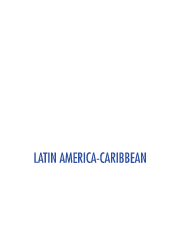Medios
INICIO
MEDIOS

March 26, 2024 - The latest Airport Carbon Accreditation Annual Report is out now, featuring the global and regional participation and carbon performance results delivered by airports in Year 14 (2022-2023).
Clocking in a very positive year for airport climate action in a period still marked by the stunted recovery from COVID-19, the global airport community engaged in the programme has once again demonstrated its commitment to reducing its impact on the climate.
From Asia-Pacific & Middle East to Latin America & the Caribbean, airports have stepped up their efforts to address climate change on the back of growing participation momentum, which in the period covered by this Annual Report reached almost 500 airports.
More airports engaging in the programme (more than 100 new entries) and progressing to more ambitious levels of accreditation (130 upgrades) translated to a milestone carbon reduction result. Airports involved in the programme together delivered a reduction of –1,232,196 tonnes of CO2 in Scope 1 and 2 emissions (-17.7%). This is the highest reduction ever achieved in the programme and is akin to removing over 250,000 cars from the streets for a year!
The following absolute emissions savings achieved by airports in their respective regions contributed to this result:
- Africa: -83,501 tonnes of CO2
- Asia-Pacific & Middle East: -470,021 tonnes of CO2
- Europe: -452,893 tonnes of CO2
- Latin America & the Caribbean: -35,314 tonnes of CO2
- North America: -190,467 tonnes of CO2
INCREASED ALIGNMENT WITH GLOBAL CLIMATE GOALS
At the end of the reporting period, 66 airports worldwide were holding accreditation at Levels 4/4+, the highest levels of accreditation during the reporting period. This figure speaks volumes of airports’ rising ambitions and ongoing pursuit of full alignment with the goals enshrined in the Paris Agreement. The number of airports at these advanced levels of carbon management more than doubled over the previous reporting period.
With a firm focus on the ultimate goal of reaching Net Zero CO2 emissions industry-wide by 2050, Airport Carbon Accreditation has taken a bold step forward by introducing Level 5, the new highest level of the programme. This new level establishes a blueprint for achieving a Net Zero carbon balance at an airport, requiring airports to reduce emissions within their own control by 90% and invest in carbon removal for their remainder. As part of its stringent requirements, airports need to work even more closely with their entire ecosystem, as they will have committed to reaching Net Zero emissions for Scope 3, addressing both upstream and downstream emissions in their carbon reduction strategy. Although not covered by the reporting period of this publication, we have included a sneak peek of the launch of Level 5 within it.
The Voice of LATIN AMERICA & CARIBBEAN AIRPORTS


